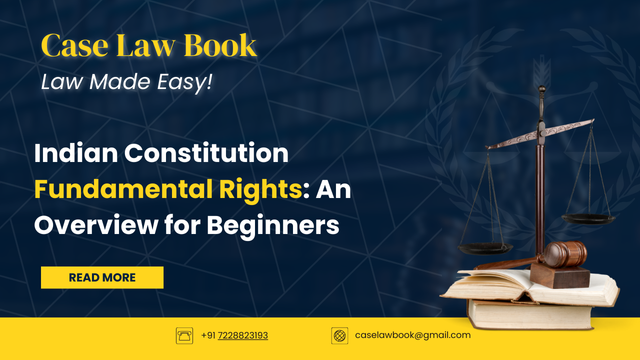Indian Constitution Fundamental Rights form the bedrock of Indian democracy, guaranteeing fundamental freedoms and liberties to all citizens. These rights, enshrined in Part III of the Constitution, are considered sacrosanct and are meant to ensure a just and equitable society for all.
What are Fundamental Rights?
Indian Constitution Fundamental Rights are a set of basic human rights guaranteed to all citizens of India by the Constitution. They are considered fundamental because they are essential for the development and well-being of every individual. These rights are not absolute and can be subject to reasonable restrictions in the interest of public order, morality, and national security.
Key Features of Fundamental Rights:
- Inherent and Inalienable: Indian Constitution Fundamental Rights are inherent rights that belong to every individual by virtue of their humanity. They cannot be taken away or denied by the state except under specific circumstances and within reasonable limits.
- Justiciable: Indian Constitution Fundamental Rights are enforceable in courts of law. Citizens can approach the Supreme Court (under Article 32) or the High Courts (under Article 226) to seek redress if their Indian Constitution Fundamental Rights are violated.
- Fundamental: Indian Constitution Fundamental Rights are considered fundamental to the well-being and development of an individual and society. They form the cornerstone of Indian democracy.
Categories of Fundamental Rights:
The Constitution of India guarantees six fundamental rights:
- Right to Equality (Articles 14-18): Ensures equality before the law, prohibits discrimination on grounds of religion, race, caste, sex or place of birth, and guarantees equality of opportunity in matters of public employment.
- Right to Freedom (Articles 19-22): Guarantees freedom of speech and expression, assembly, association, movement, residence, and the right to practice any profession or occupation. It also includes protection against arbitrary arrest and detention.
- Right Against Exploitation (Articles 23-24): Prohibits traffic in human beings, forced labor, and the employment of children in hazardous occupations.
- Right to Freedom of Religion (Articles 25-28): Guarantees freedom of conscience and the right to freely profess, practice, and propagate religion.
- Cultural and Educational Rights (Articles 29-30): Protects the rights of minorities to conserve their culture and language and to establish and administer educational institutions.
- Right to Constitutional Remedies (Article 32): The right to move the Supreme Court for the enforcement of any of these Indian Constitution Fundamental Rights.
Significance of Fundamental Rights:
Indian Constitution Fundamental Rights are crucial for a just and equitable society. They:
- Protect individual liberties: By safeguarding fundamental freedoms, they ensure that individuals can live their lives with dignity and without fear of arbitrary state action.
- Promote social and economic equality: Indian Constitution Fundamental Rights aim to create a society where all individuals have equal opportunities, regardless of their background or social status.
- Uphold the principles of democracy: They are essential for the functioning of a democratic society, ensuring that the government respects the rights and freedoms of its citizens.
- Promote social and economic development: By protecting individual liberties and promoting equality, Indian Constitution Fundamental Rights contribute to the overall social and economic development of the country.
Conclusion:
Indian Constitution Fundamental Rights are the bedrock of Indian democracy. They guarantee the fundamental freedoms and liberties of all citizens and are essential for a just and equitable society. Understanding these rights is crucial for every citizen to exercise their rights and hold the government accountable.
Also Read:
How to File a Case for Land Dispute in India: A Practical Guide from a Legal Expert
Criminalizing Marital Rape in India: What Needs to Change?
